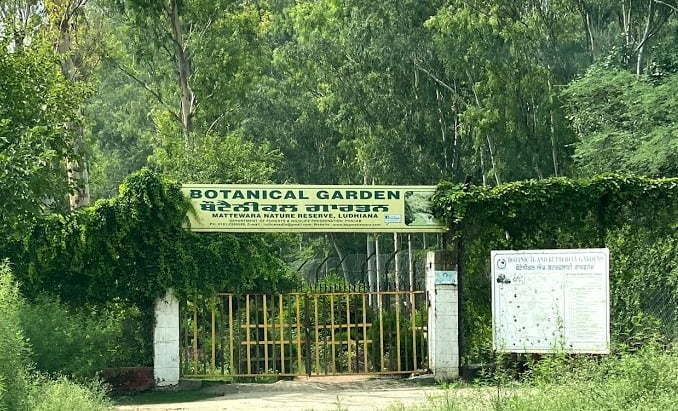

The river Satluj is perhaps Punjab’s only real lifeline. While river Beas flows into the state for a short distance and merges with Satluj, the river Ravi defines a border with Jammu and Kashmir and later Pakistan. Satluj runs through the entire breadth of Punjab and that is why it is in Punjab’s greatest interest to keep Satluj clean.
The multiple lockdowns owing to Coronavirus have taken a deep toll on our economy but also shown something wonderful in Ludhiana, the industrial hub of Punjab.
Ludhiana city and industry is settled and has grown around the distributary and tributary of the Satluj called Buddha Dariya/Nalla. When the rivulet leaves the Satluj from near Bela, until it reaches Ludhiana, it is called Dariya. Once it passes through Ludhiana, carrying all the waste from the many dyeing and electroplating industries back into Satluj near Sidwan Bet, it is called Nalla.
Often the people’s folk sense of naming natural phenomena embodies greater truths. In spite of all surveys and reports on the pollution of Buddha Dariya/Nalla, the lock-downs related to Coronavirus revealed the truth of the matter. With industries closed, the rivulet cleaned up. It is indeed the industries that pollute it. This is the lesson the Punjab government needs to learn and imbibe.
That is why when a Punjab Cabinet decision to start industrial activity at the Mattewara forest land came to light a few days back, the people of Punjab stood up to protect the forest. Mattewara forest is on the banks of Satluj, about 50 kilometers before the Sidwan Bet. Social activists, environmentalists, students, even some politicians joined the campaign to save the Mattewara forest and the river Satluj.
They were correct. At 4 per cent coverage, next to Haryana, Punjab is the most forest deprived state in the country. The agrarian state has seen systematic destruction of its forests over many decades – land repurposed for industry and other uses.
The social media campaigns, the reporting in media, the people’s agitation reached the corridors of power. Two days back the Ludhiana Deputy Commissioner Varinder Sharma released his address on social media promising the people of Punjab that the 1000 acre industrial development area will not touch a tree of the Mattewara forest.
Sharma said out of the land acquired, 207.07 acres belonged to animal husbandry department, 285.1 acres to rehabilitation department (potato seed farm), 416.1 acres land belongs to gram panchayat Sekhowal, while 27.1 acres is of gram panchayat Salempur (potato seed farm) and 20.3 acres is of gram panchayat, Sailklan. He reassured that the design and layout of the industrial development area will look into all aspects of the forest and will ensure the natural flora and fauna is not disturbed.
This is a welcome step and shows that people’s voice is heard. However, the agitations have not ended. The reason is: a trust deficit in the government. People do not trust the government any longer. In many instances in the past the people have witnessed how the government – of any party – goes back on its word, betrays its promise.
In the case of Mattewara, it needs to be noted that any heavy industry that belches smoke, pollutes water, draws on local resources will willy-nilly pollute the forest. The core issue with industry in Punjab – a great need for the state to generate both employment and revenue – is that the industrialists are not due diligent towards environmental concerns.
Even if they, on paper, commit to sewage treatment plants, they do not follow though. Even if they are fined, they often file appeal for fines to be reduced or waived. Since they have deep pockets, the state administration is often helpless to deal with them.
It is also true that land sharks follow industry. As soon as a land is notified, its price rises. This leads to encroachment, or illegal conversion of land from forest into plots. These are the reasons that lead to people’s anger and distrust in the state’s narrative.
Can the state prove it will walk the talk at Mattewara? It is not about reassurance alone, the state needs to prove how on ground will it prevent the abuse of the forests and the river? Can the state still reconsider its decision to shift the industry elsewhere, towards south of Ludhiana and not close to the river Satluj? These questions are still open and until we have answers, the people will have to be vigilant.
————————–
Watch video:

Disclaimer : PunjabTodayTV.com and other platforms of the Punjab Today group strive to include views and opinions from across the entire spectrum, but by no means do we agree with everything we publish. Our efforts and editorial choices consistently underscore our authors’ right to the freedom of speech. However, it should be clear to all readers that individual authors are responsible for the information, ideas or opinions in their articles, and very often, these do not reflect the views of PunjabTodayTV.com or other platforms of the group. Punjab Today does not assume any responsibility or liability for the views of authors whose work appears here.
Punjab Today believes in serious, engaging, narrative journalism at a time when mainstream media houses seem to have given up on long-form writing and news television has blurred or altogether erased the lines between news and slapstick entertainment. We at Punjab Today believe that readers such as yourself appreciate cerebral journalism, and would like you to hold us against the best international industry standards. Brickbats are welcome even more than bouquets, though an occasional pat on the back is always encouraging. Good journalism can be a lifeline in these uncertain times worldwide. You can support us in myriad ways. To begin with, by spreading word about us and forwarding this reportage. Stay engaged.
— Team PT


Copyright © Punjab Today TV : All right Reserve 2016 - 2025 |